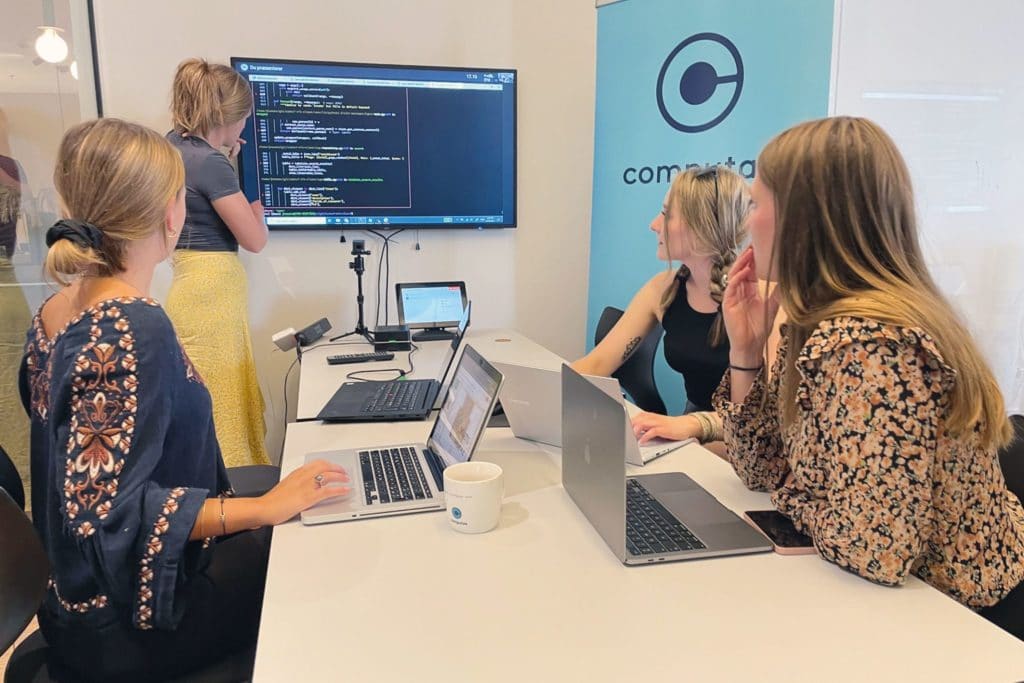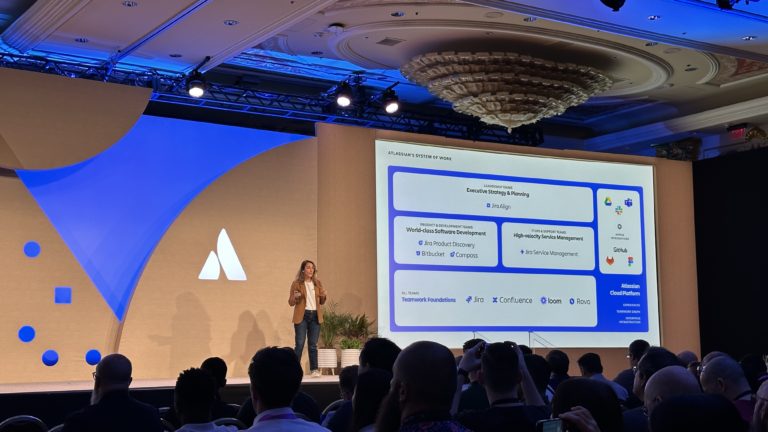
Women in Tech: We Need to Break Down the Stereotypes Surrounding Our Industry
By: Business Review 31/08/2021 – Written by; Klaus Thodsen.
What has traditionally been a male-dominated field has, in recent years, increasingly attracted women challenging the notion of tech as a male-centric industry. Although the goal hasn’t been fully achieved yet, things are moving in the right direction, according to Kira and Josephine from Computas.
“The tech industry is traditionally male-dominated, and most of the major tech giants are led and founded by men. This means that the way our social media, IT systems, and many of the systems that bind society together are developed by men. To ensure solutions for everyone, we need to involve more women in decision-making and development processes. That’s why we need more women in tech,” says Josephine Honoré, Data Scientist at Computas.
She is certain that there is a significant need for more women at all levels of tech companies. And even though the tech industry is welcoming more and more women in recent years, the percentage of women in the industry remains very low compared to other sectors. When asked about the impact of having more women working in tech, the answer is clear.
“It will generate more and better ideas. Women and men don’t always think alike and envision the same solutions to the challenges we face daily. Many of society’s structures are supported and developed with IT, and therefore, companies that deliver IT solutions have significant influence. So, I see the goal of having more women in the tech industry as a way to rebalance the power dynamics between men and women.”
Another Narrative About Tech
One thing is the goal of having more women enter the tech industry; another is the path to get there. The development starts at the very bottom of the food chain — during admissions to the studies that can contribute to the development of female talents that will eventually find their way to the many tech companies emerging within various industries in recent years.
“I think it’s about the way we fundamentally talk about the tech industry. Tech is an incredibly creative field where you work every day to help people, institutions, and businesses,” says Kira Charlotte Jensen, Product Owner, and Software Developer at Computas.
For her, it’s a matter of creating and increasing interest in IT and tech even before young people enter university. Not just to give new students better prerequisites for their upcoming studies but also to provide all children and young people with a greater understanding of the processes and ways in which society and businesses are organized as everything that can be digitized becomes digitized.
“There is a big difference between explaining how to develop systems and software and explaining what these systems or software will do for the citizen or customer on the other end. I would like the tech industry to get better at explaining what we do for people and the value our solutions ultimately create for them. Often, it becomes a story about software and algorithms when we in the tech industry have to explain what we do. Different candidates are attracted depending on what a company chooses to focus on in its narrative.”
A Need for Innovative Companies
If the figures for women in the tech industry are to look different in the future than they do today, it requires not only more women in educational programs but also innovative companies taking the lead in efforts to bring more women into both the company and leadership positions.
“I think Computas is doing significant work in that direction, and we have many more women in the company than you see in many other tech companies. Computas has participated in the annual ‘SHE Index’ survey conducted by SHE Community and EY in Norway in recent years. The purpose of the survey is to encourage the business sector to focus more on diversity and inclusion. Computas has consistently ranked at a high level each year, and we now have a score of 87 out of 100, which is well above the average for the IT industry, which is at 68. I have sat in on several job interviews, and it often happens that applicants specifically inquire about the diversity in our company, and it’s nice to be able to show that we are actually ahead of the curve in this regard,” says Kira Charlotte Jensen.
“At Computas, there is a good tradition of working closely with universities and recruiting young talents even before they finish their studies. There are still relatively few female developers in the industry, so it’s important to reach out to the young, where the proportion of women is greater,” adds Josephine Honoré.
Positive Development
Despite the fact that the percentage of women in the tech industry remains on the lower side, both Josephine and Kira share that they have never had any issues fitting in or being accepted in the positions they have landed.
“I have never seen it as a challenge or a problem at all, and I don’t have a sense that anyone in the tech industry is trying to avoid having women on their teams. On the contrary, I would actually say that I experience a very strong focus on getting more women into the companies and making it more attractive than it may have been in the past,” says Josephine Honoré.
Kira Charlotte Jensen shares this perception. She joined Computas a little over six months ago after working for SharkCell, which was acquired by Computas. She mentions that Computas had female programmers already in the mid-80s and that the company has in every way contributed to paving the way for more women in the tech industry.
“You break down many of your preconceptions about the job once you get into the companies, and in a way, it’s a bit unfortunate that it’s only there that the reality fully dawns on you as an employee. It’s, of course, a technically grounded job, but my own job is just as much about collaborating with external clients, finding solutions to problems, engaging in social relationships, and it’s important that this also becomes part of the understanding of jobs like ours,” says Kira Charlotte Jensen and continues.
“Because you don’t need to have been a computer nerd your whole life to work with IT and tech. You don’t need to have gone to a computer camp and be able to code before you start. It’s enough to be curious and have a desire to learn and work logically, and then programming is a subject like any other, where you learn and develop along the way.”
And the better understanding that can be generally created for the many new jobs emerging throughout the tech industry, the better the understanding will also be for the need to get more women into studies and out into companies.
“It’s good to see that things are heading in the right direction for women in this industry. There is also a need for that because it is IT and tech companies that will play a significant role in our future, both in terms of infrastructure, societal development, and the way we interact digitally. And there is a need for women to be part of that development,” Josephine Honoré concludes.




